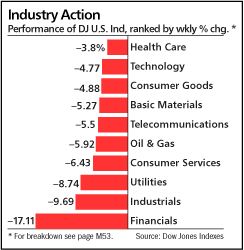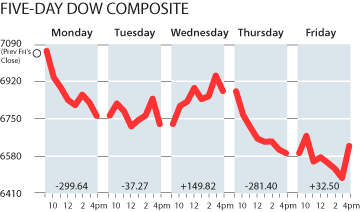My Take on Greed
Greed came close to throwing the entire country into an economic recession. But greed has its upside too.
By Fred W. Frailey, Editor
From Kiplinger's Personal Finance magazine, April 2008
Lately, I've been thinking about greed. In our capitalist system, it does a lot of good by prodding us to become successful financially. But it can also do a lot of harm. People break laws under the influence of greed -- or they do only what's best for themselves, at the expense of everyone else.
Want some examples? Out of greed, mortgage bankers made home loans to people with poor credit histories, then immediately sold the loans. Now when borrowers default, it's somebody else's problem.
Out of greed, Wall Street's investment bankers packaged the same loans in ways that earned the securities undeserved investment-grade ratings, then sold them to eager clients. As those securities are now downgraded to junk, they become pretty close to worthless.
Four of the five biggest firms on the Street -- Bear Stearns, Lehman Brothers, Merrill Lynch and Morgan Stanley -- recently took losses in the tens of billions of dollars for subprime skeletons in their own closets.
So what did greed accomplish? It destroyed the share prices of the investment banks, punishing those of you who invested in them. It cost thousands of employees their jobs as the firms downsized. It at least came close to throwing the entire country into an economic recession, by causing the financial machinery to seize up.
And yet, the four investment banks, plus Goldman Sachs (which didn't underwrite securities that contained subprime-mortgage loans), handed out year-end bonuses in 2007 totaling $39 billion -- that's right, billion. That's more than three times the combined profits of all five firms last year. Bloomberg News reports that Wall Street firms will pay the best 2007 bonuses ever, despite massive loss in the public market value of their securities. Specifically, the five biggest Wall Street firms will pay 6% higher bonuses totaling $38 billion to be spread among their 186,000 workers — an average of $201,500 per employee.
Bloomberg News, which recently revealed these interesting facts, quotes an executive recruiter: "It's critical that pay is still there or you're going to lose really good people." Let me get this straight: In reckless pursuit of underwriting profits, the executives and talented people at four firms almost brought down their companies and the U.S. economy -- and their reward is an even bigger bonus pool so they won't jump ship?
Still, I think greed can be good. Bill Gross has spent his adult life building Pimco, in Newport Beach, Cal., into a bond-trading megabusiness. As its co-founder and managing partner, he has amassed a net worth of $1.3 billion, according to Forbes magazine. And now he and his wife, Sue, are happily giving it away through their family foundation.
Can greed be good? No, greed is never good. The examples of a Bill Gross, Warren Buffet, or Bill Gates are not examples of greed but one of grace and compassion.
Subscribe to:
Post Comments (Atom)


No comments:
Post a Comment